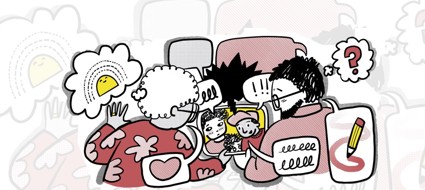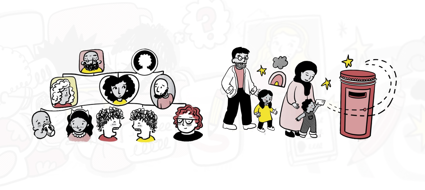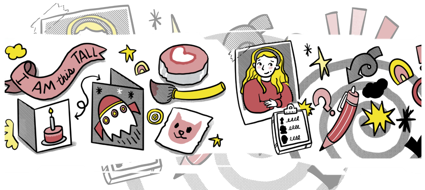Led by researchers from the School of Social Work at the University of East Anglia (UEA), the Maintaining Relationships project is changing how adoption works across the UK. It aims to influence national policy, transform professional training, and create digital tools for social care professionals.
The project has recently been recognised with the University of East Anglia Chancellor's 2025 Award for Outstanding Achievement, which every year celebrates the best research which has shaped real-world outcomes.
For nearly 30 years, Professor Elsbeth Neil, along with myself and other colleagues, has been involved in researching the impact of birth family contact after adoption, including the UK’s only longitudinal study on post-adoption contact.
In partnership with Research in Practice and Adoption England, we developed a suite of resources for the open access Staying in touch: Contact after adoption hub. It explores and shares examples of flexible, relationship-focussed and creative ways of keeping in touch. It also shows how the traditional form of keeping in touch through annual letters (which is very challenging in practice) does not have to be the only consideration.
A series of upcoming interactive workshops will build on these resources, exploring the key stages of planning contact, and the main challenges and enablers in this area of work.
Embedding a culture change
Traditionally in adoption the view has been to cut off a child’s existing links, stemming from assumptions that the only way a child can have a new family is by losing their existing family. The research has shown that it can have significant and long-term benefits for children to stay in touch with either their parents, brothers and sisters, grandparents or other family members, where that’s safe. But there has been a gap between this research knowledge and what happens in practice, where a lot of children are still losing those connections.
Through the project, we have been making progress in bridging that gap and changing professional culture and understanding. At the start of this work, researchers at UEA, people with lived experience and practitioners fed into a ‘Theory of change’. The aim was to build a consensus about what a culture change around maintaining relationships in adoption might be trying to achieve, and what the likely enablers and barriers might be.
Following a launch conference, we created an extensive programme of training webinars and facilitated community of practice workshops to support agency champions to inspire and inform colleagues to make changes on the ground.
The impact of the project
There has been a widely positive response to the webinars and training materials. They have helped prompt discussions and challenge thinking in agencies and have been used with frontline social workers and prospective adopters. The resources aim to promote a better understanding of how birth family connections can help children in their lifelong identity journey.
We heard back that about 70% of agencies have now introduced individualised contact planning. Many agencies have reported that they are thinking more creatively about how to build relationships and keep in touch with different family members, including siblings and extended family members. The scale of change has been substantial, although champions have been keen to emphasise how much more they could do with more resources, particularly staff time to support more ambitious keeping in touch plans.
Some agencies have been supporting families to use digital platforms such as Letter Swap as a new way to communicate and build relationships. In some cases, this has led to dramatic improvements in the experience of contact for children who have enjoyed the chance to see or hear their birth relatives in video or voice messages.
Supporting meaningful contact
Adoptive families have valued being able to share everyday achievements of their child - such as a win on sports day - with birth relatives as they happen. These updates give birth family members a real insight into their child's life in their adoptive family. The broader culture change work has been important for the benefits of these systems to be maximised, helping to change professional mindsets and support relational work with families to negotiate arrangements that are comfortable and feasible for all.
The work has also informed high-level policy conversations, including guidance by the President of the Family Courts and findings from Adoption UK and the House of Lords.
We're really proud to finally see our decades of research influence positive movement and help make meaningful change for children who are being adopted today. Our goal is that adopted children don't lose people who care about them and they grow up with a good sense of their life story, who they are and where they've come from.
We are indebted to the many people with lived experience who have been a vital part of this work; speaking at conferences, webinars and training events, producing video content, and participating in national and local project steering groups. We are also grateful for the adoptive parents and birth relatives who have taken on these new messages and made changes for the benefit of children.
Staying in touch: Contact after adoption
An open access resource hub for practitioners working with individuals to maintain meaningful relationships after adoption.
Supporting contact for children who are adopted, fostered or in kinship care
Join an interactive workshop that will explore planning, reviewing and supporting contact for children who are adopted, fostered or in kinship care.




